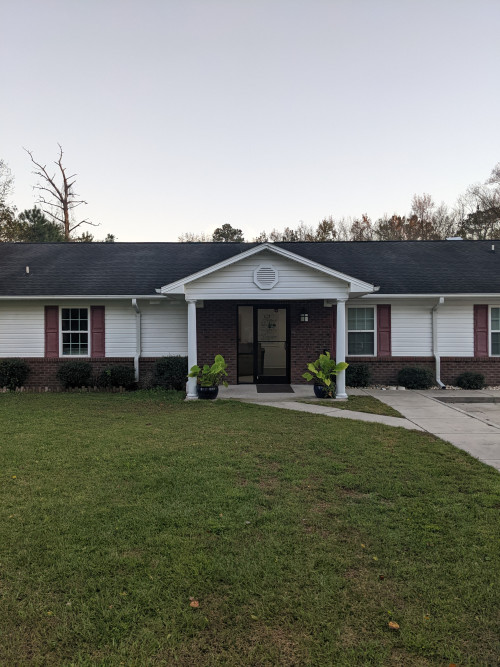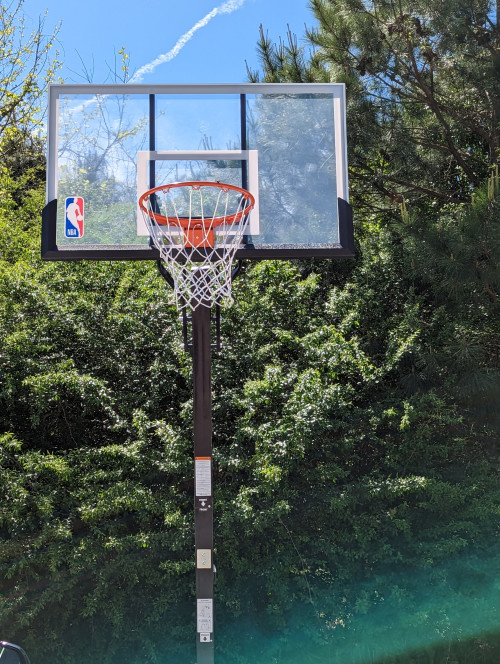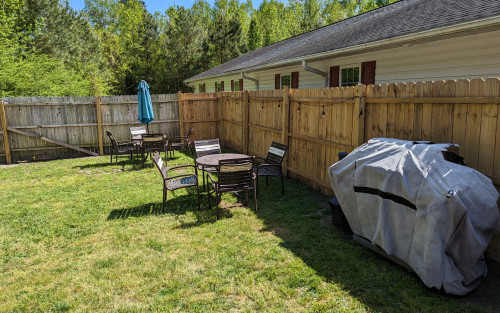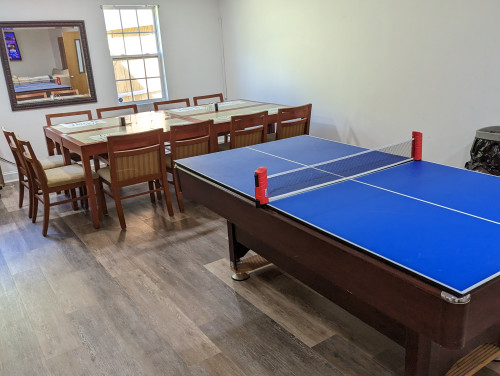






Focused Addiction Recovery
Treatment Focus
This center treats substance use disorders and co-occurring mental health conditions. Your treatment plan addresses each condition at once with personalized, compassionate care for comprehensive healing.
Primary Level of Care
Outpatient treatment offers flexible therapeutic and medical care without the need to stay overnight in a hospital or inpatient facility. Some centers off intensive outpatient program (IOP), which falls between inpatient care and traditional outpatient service.
Claimed
Recovery.com has connected directly with this treatment provider to validate the information in their profile.
Treatment Focus
This center treats substance use disorders and co-occurring mental health conditions. Your treatment plan addresses each condition at once with personalized, compassionate care for comprehensive healing.
Primary Level of Care
Outpatient treatment offers flexible therapeutic and medical care without the need to stay overnight in a hospital or inpatient facility. Some centers off intensive outpatient program (IOP), which falls between inpatient care and traditional outpatient service.
Provider's Policy
It’s likely that your insurance coverage is accepted at FAR. We work with many insurance providers to get you the treatment you need at little to no cost to you. If you don’t currently have insurance coverage we also offer different payment options to help you find recovery.
Focused Addiction Recovery
Focused Addiction Recovery
About Focused Addiction Recovery
Focused Recovery Center (FAR) is a dual-diagnosis outpatient treatment facility providing treatment for adults who are struggling with drug or alcohol addictions and co-occurring mental health disorders. They offer a continuum of care ranging from outpatient detox services to relapse prevention, providing holistic and evidence-based care based on the principles of the 12-step recovery model.
Intensive Outpatient Treatment Services
Focused Recovery offers individually tailored treatment through a variety of outpatient treatment programs that vary in intensity. Their highest level of care is their partial hospitalization program (PHP). In PHP, patients can participate in an intensive level of care that is similar to a residential treatment program without the requirement of living at a treatment facility. Patients can participate in PHP for ongoing care after attending residential treatment, or as an alternative to residential treatment. Day treatment typically consists of 3-5 days per week, 4-6 hours per day.
Their intensive outpatient program (IOP) is a step down from PHP. Clients typically participate in active treatment 3-4 days per week for 2-4 hours per day. Patients stepping down from PHP will continue to work their personally tailored treatment plans while they begin to focus more on their daily responsibilities outside of treatment. Clients who don’t initially need a more intensive level of care are able to start their treatment at the IOP level if deemed appropriate. They also offer a virtual IOP option to make care as accessible as possible.
Patients participating in PHP or IOP will be given an initial assessment to identify their treatment needs and structure a personalized treatment plan. The licensed and experienced staff at FAR take a holistic approach to treatment, offering evidence-based therapies and an introduction to the 12-step program. Clients in treatment may participate in individual, group, and family therapy, addiction education, medication management, and medication-assisted treatment (MAT). Evidence-based therapies may include proven methods to address substance abuse and co-occurring mental health disorders such as cognitive behavioral therapy (CBT), and dialectical behavioral therapy (DBT).
Other recovery programs and services provided by FAR include support groups and 12-step recovery meetings, relapse prevention counseling, a treatment program for DWI support for individuals convicted of driving under the influence, and a general outpatient program (OP), where clients can attend ongoing private therapy in person or virtually.
FAR also offers outpatient detox services, where clients meet with clinical staff on a daily basis while still residing at home. Medical professionals will monitor physical and mental withdrawal symptoms, and offer medication-assisted treatment (MAT) using medications to help alleviate symptoms and cravings when necessary. They also offer medication management services, where a psychologist can review or adjust a current mental health medication regimen, or begin being prescribing mental health medication when appropriate.
Along with outpatient treatment services, FAR offers sober living, a semi-structured program designed to bridge the gap between inpatient care and independent living. Sober living provides a substance-free environment, structure, and accountability while patients work on their recovery while integrating back into society. FAR sober living provides regular drug and alcohol screenings, curfews, chores and household responsibilities, 12-step and other recovery meetings, and vocational, educational, or financial support and education. Clients are part of a structured and stable sober environment, given a sense of community and connection, and continue treatment as patients ease back into their daily lives. Clients must have completed a residential or intensive outpatient program before being eligible for sober living.
Focused Addiction Recovery is a CARF accredited facility that accepts most major insurances and offers private pay.
Center Overview
Treatment Focus
This center treats substance use disorders and co-occurring mental health conditions. Your treatment plan addresses each condition at once with personalized, compassionate care for comprehensive healing.
CARF Accredited
CARF stands for the Commission on Accreditation of Rehabilitation Facilities. It's an independent, non-profit organization that provides accreditation services for a variety of healthcare services. To be accredited means that the program meets their standards for quality, effectiveness, and person-centered care.
Supportive Medication for Recovery
Medication-Assisted Treatment (MAT) is an evidence-based approach that pairs FDA-approved medications with counseling to treat addiction. The medications are used to reduce cravings, ease withdrawal symptoms, or block the effects of substances. More about MAT
Methadone
Methadone

Dolophine®, Methadose®
Methadone is a full opioid agonist, meaning it activates opioid receptors in the brain to produce effects like pain relief and euphoria. It is longer acting than many other opioids, making it useful in medication-assisted treatment for opioid use disorder.
It reduces withdrawal symptoms and cravings by occupying opioid receptors without causing intense highs. Because it is a full agonist, it must be used carefully to avoid overdose, but it is highly effective when taken as prescribed within a structured program.
Naltrexone
Naltrexone

Vivitrol®, Revia®
Naltrexone is an opioid antagonist, meaning it blocks opioid receptors in the brain and prevents opioids from producing effects like euphoria or sedation. It is used to treat both opioid and alcohol use disorders, but does not cause physical dependence or withdrawal.
It helps reduce cravings and the rewarding effects of opioids or alcohol, supporting long-term recovery. Because it blocks opioid effects, it should only be started after a person has fully detoxed from opioids to avoid triggering withdrawal.
Buprenorphine
Buprenorphine

Suboxone®, Subutex®, Sublocade®, Zubsolv®
Buprenorphine is a partial opioid agonist used to treat opioid use disorder. It activates opioid receptors to reduce cravings and withdrawal but has a ceiling effect, meaning it produces less euphoria and respiratory depression than full opioids.
Buprenorphine binds tightly to opioid receptors, blocking other opioids from attaching and reducing the risk of misuse. It's often combined with naloxone (as in Suboxone®) to discourage injection misuse and is available in daily or monthly forms.
Note: Treatment centers offer different forms of MAT—such as oral tablets, dissolvable films, or monthly injections—and their policies can vary based on state regulations, provider preferences, and insurance coverage. Because of these differences, it's best to contact the center directly to learn what options are available and what might be right for your situation.
Insurance Accepted
Cash Pay Rates
Estimated Cash Pay Rate
Center pricing can vary based on program and length of stay. Contact the center for more information. Recovery.com strives for price transparency so you can make an informed decision.
Levels of Care








Your Care Options
Specializations
Day Treatment
In a PHP, patients live at home but follow an intensive schedule of treatment. Most programs require you to be on-site for about 40 hours per week.
Co-Occurring Disorders
A person with multiple mental health diagnoses, such as addiction and depression, has co-occurring disorders also called dual diagnosis.
Detox
Detox fully and safely removes toxic substances from the body, allowing the next steps in treatment to begin with a clean slate.
Who We Treat
Men and Women
Men and women attend treatment for addiction in a co-ed setting, going to therapy groups together to share experiences, struggles, and successes.
Approaches
Personalized Treatment
The specific needs, histories, and conditions of individual patients receive personalized, highly relevant care throughout their recovery journey.
Holistic
A non-medicinal, wellness-focused approach that aims to align the mind, body, and spirit for deep and lasting healing.
Evidence-Based
A combination of scientifically rooted therapies and treatments make up evidence-based care, defined by their measured and proven results.
Therapies
1-on-1 Counseling
Patient and therapist meet 1-on-1 to work through difficult emotions and behavioral challenges in a personal, private setting.
Family Therapy
Family therapy addresses group dynamics within a family system, with a focus on improving communication and interrupting unhealthy relationship patterns.
Art Therapy
Visual art invites patients to examine the emotions within their work, focusing on the process of creativity and its gentle therapeutic power.
Nutrition Counseling
Nutritious food helps patients heal from within, setting them up for mental and bodily wellness as they learn about healthy eating.
Life Skills
Teaching life skills like cooking, cleaning, clear communication, and even basic math provides a strong foundation for continued recovery.
Conditions We Treat
Post Traumatic Stress Disorder
PTSD is a long-term mental health issue caused by a disturbing event or events. Symptoms include anxiety, dissociation, flashbacks, and intrusive thoughts.
Anxiety
Anxiety is a common mental health condition that can include excessive worry, panic attacks, physical tension, and increased blood pressure.
Depression
Symptoms of depression may include fatigue, a sense of numbness, and loss of interest in activities. This condition can range from mild to severe.
Schizophrenia
Schizophrenia is a serious mental health condition that causes hallucinations, delusions, and disordered thinking.
Personality Disorders
Personality disorders destabilize the way a person thinks, feels, and behaves. If untreated, they can undermine relationships and lead to severe distress.
Bipolar
This mental health condition is characterized by extreme mood swings between depression, mania, and remission.
Trauma
Some traumatic events are so disturbing that they cause long-term mental health problems. Those ongoing issues can also be referred to as "trauma."
Substances We Treat
Cocaine
Cocaine is a stimulant with euphoric effects. Agitation, muscle ticks, psychosis, and heart issues are common symptoms of cocaine abuse.
Prescription Drugs
It's possible to abuse any drug, even prescribed ones. If you crave a medication, or regularly take it more than directed, you may have an addiction.
Benzodiazepines
Benzodiazepines are prescribed to treat anxiety and sleep issues. They are highly habit forming, and their abuse can cause mood changes and poor judgement.
Co-Occurring Disorders
A person with multiple mental health diagnoses, such as addiction and depression, has co-occurring disorders also called dual diagnosis.
Drug Addiction
Drug addiction is the excessive and repetitive use of substances, despite harmful consequences to a person's life, health, and relationships.
Heroin
Heroin is a highly addictive and illegal opioid. It can cause insomnia, collapsed veins, heart issues, and additional mental health issues.
Methamphetamine
Methamphetamine, or meth, increases energy, agitation, and paranoia. Long-term use can result in severe physical and mental health issues.
Opioids
Opioids produce pain-relief and euphoria, which can lead to addiction. This class of drugs includes prescribed medication and the illegal drug heroin.
Alcohol
Using alcohol as a coping mechanism, or drinking excessively throughout the week, signals an alcohol use disorder.









